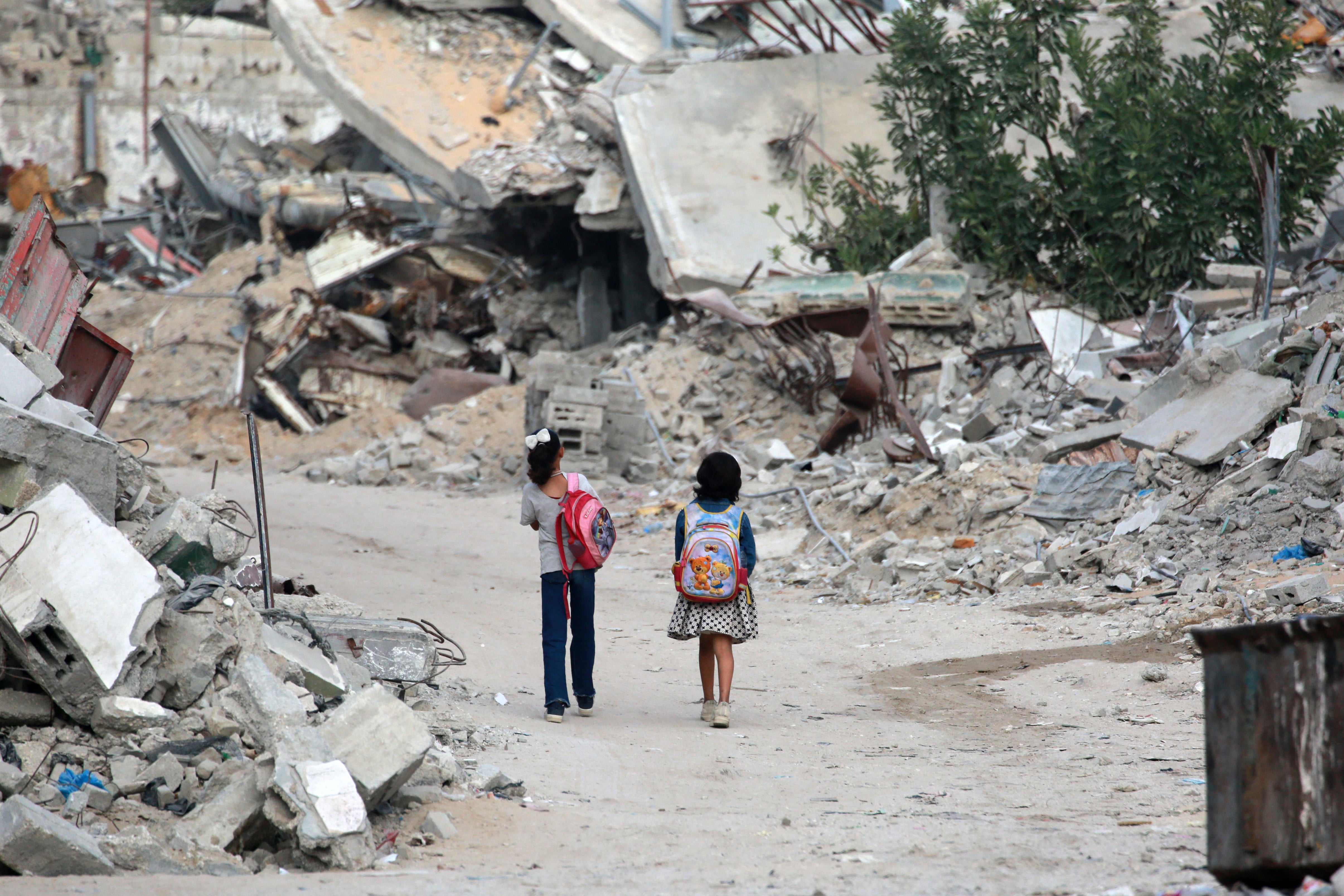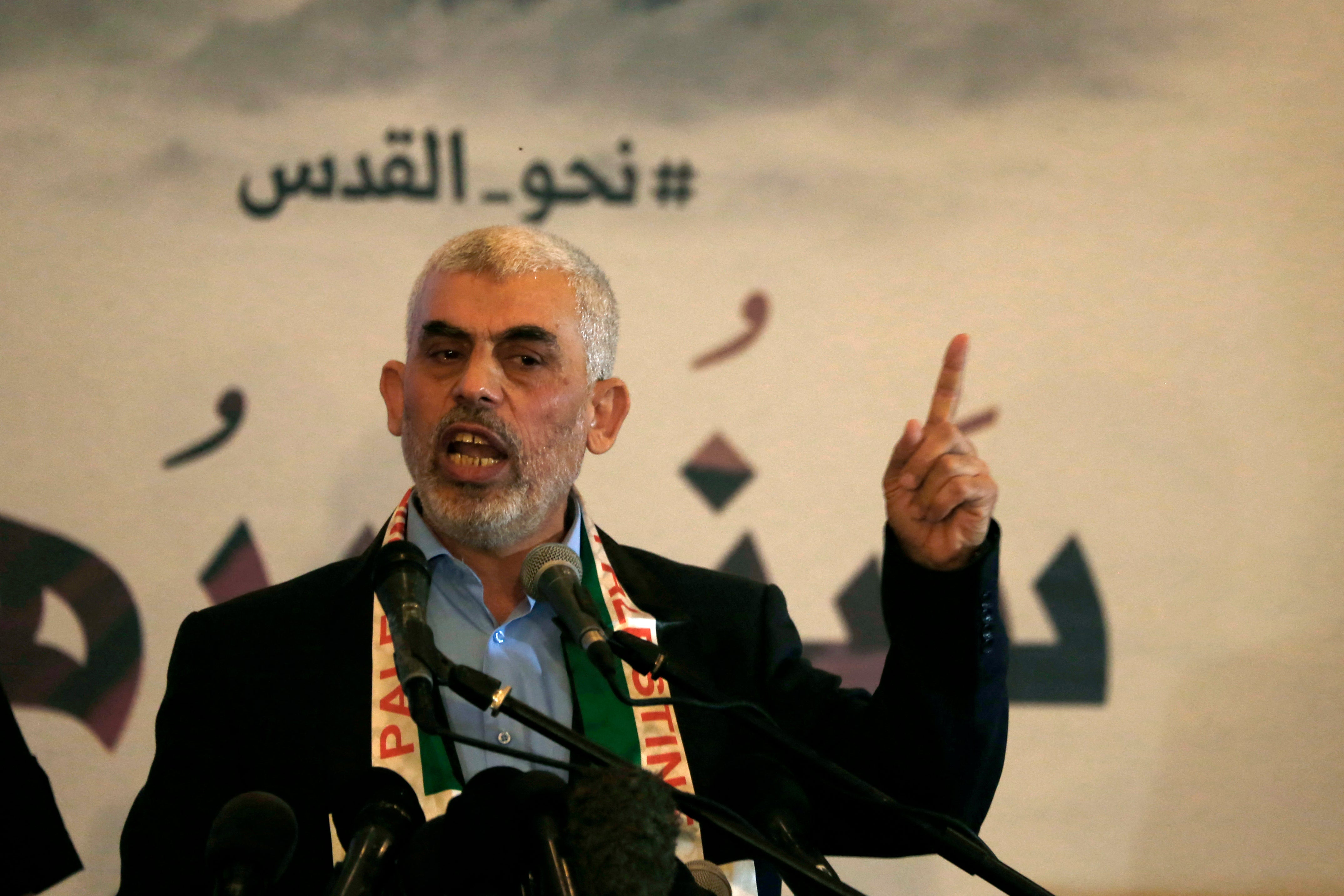A drone was launched towards the private home of Benjamin Netanyahu but there were no casualties, Israel said on Saturday as fresh strikes were launched on Beirut.
Neither Mr Netanyahu nor his wife were at home in the coastal town of Caesarea at the time, his spokesperson said in a statement.
It comes as more than 50 people in Gaza, including children, were killed in several Israeli strikes in less than 24 hours, according to hospital officials.
In Lebanon, the health ministry said an Israeli air strike on Saturday hit a vehicle on a main highway north of Beirut, killing two people. It was unclear who was in the car.
Sirens wailed on Saturday morning in Israel warning of incoming fire from Lebanon, which included a drone launched towards Mr Netanyahu’s house, the Israeli government said.
Yemen’s Houthi rebels launched a ballistic missile towards Ben Gurion airport when Mr Netanyahu’s plane was landing there in September, but the missile was intercepted.
More strikes pounded Gaza on Saturday. The Hamas-run Palestinian health ministry said in a statement that Israeli strikes had hit the upper floors of the Indonesian Hospital in Beit Lahiya, and that forces had opened fire at the hospital’s building and its courtyard, causing panic among patients and medical staff.
At al-Awda Hospital in Jabaliya, northern Gaza, strikes hit the building’s top floors, injuring several staff members, the hospital said in a statement.

Three houses in Jabaliya were struck overnight on Friday, killing at least 30 people, more than half of them women and children, said Fares Abu Hamza, the head of the health ministry’s ambulance and emergency service. At least 80 people were injured.
In central Gaza, at least 10 people were killed, including two children, when a house was hit in the town of Zawayda, according to the al-Aqsa Martyrs Hospital in Deir al-Balah, where the casualties were taken.
Another strike killed 11 people, all from the same family, in the Maghazi refugee camp, the same hospital said. Associated Press journalists counted the bodies from both strikes at the hospital.
The war has destroyed vast swathes of Gaza, displacing about 90 per cent of its population of 2.3 million people and leaving them struggling to find food, water, medicine and fuel.
Israel’s military said some 55 projectiles were fired in two separate barrages at northern Israel from Lebanon on Saturday morning. Four people were injured, one of whom had moderate wounds from falling shrapnel, Israel’s medical services said.
Israeli medical services also reported that a 50-year-old man was killed after being hit by shrapnel while sitting in his car in northern Israel. In a separate statement, the emergency services said four people were injured in the strikes. It was unclear if the man killed was one of the injured.
Israel’s war with Lebanon’s Hezbollah – a Hamas ally backed by Iran – has intensified in recent weeks. On Friday, Hezbollah said it planned to launch a new phase of fighting by sending more guided missiles and exploding drones into Israel.
The militant group’s longtime leader, Hassan Nasrallah, was killed in an Israeli airstrike in late September, and Israel sent ground troops into Lebanon earlier in October.
Israel also said on Saturday that it had killed Hezbollah’s deputy commander in the southern town of Bint Jbeil. The army said Nasser Rashid had supervised attacks against Israel.
In Lebanon, the health ministry said an Israeli airstrike hit a vehicle on a main highway north of Beirut, killing two people. It was unclear who was in the car when it was struck.

A stand-off is also developing between Israel and Hamas, the militant group Israel is fighting in Gaza, with both signalling resistance to ending the war after the death of Hamas leader Yahya Sinwar earlier this week.
Israel claimed on Thursday to have killed Sinwar, and this was confirmed by a top Hamas official on Friday. Since the leader’s death, Hamas has reiterated its stance that the hostages taken from Israel a year ago will not be released until there is a ceasefire in Gaza and a withdrawal of Israeli troops.
This staunch position pushed back against a statement by Mr Netanyahu that his country’s military will keep fighting until the hostages are released, and that Israeli forces will remain in Gaza to prevent a severely weakened Hamas from rearming.
Sinwar is seen as the chief architect of the 7 October attack on Israel in which around 1,200 Israelis were killed and another 251 were taken hostage. According to the Palestinian health authorities, Israel’s retaliatory offensive in Gaza has killed 43,000 Palestinians, more than half of them women and children.
Additional reporting by Associated Press

